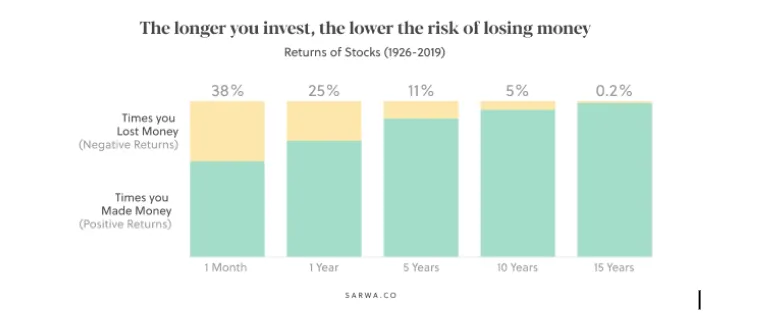Ryan Loehr
May 9, 2022


Two-years ago, I recall a friendly debate with my father-in-law about the origin of Holden.
We were talking about the reality that, as a country, we manufacture very little. For context, this was at the time we were seeing empty shelves across grocery stores. He claimed, as an example, Australia had never produced a car. I asked ‘what about Holden?’
Where our view differed is he always saw Holden as a car based off the General Motors Chassis. ‘Australian built’ didn’t necessarily mean ‘Australian made’ given it was partly invented by its US parent. Although an Australian company (until acquired by General Motors in 1931), it assembled GM cars, often Chevrolets in Australia. During the 2nd World War with Government support, Holden created Australia’s first locally made car, the Holden 48-215 or ‘FX.’ In fairness, while manufactured in Australia, Holden was owned by a foreign company, it used the intellectual property of GM and the first three ‘FX’ prototypes were shipped from GM’s experimental workshops from Detroit.
Today, the global supply-chain has become more interdependent than ever. The popular iPhone sources material and components from suppliers in 43 different countries. Parts of the iPhone camera and glass screen are built in Japan, elements of the battery were built in China and the accelerometer which tracks the phones acceleration and geographic orientation is built in Germany. The Apple supply-chain covers design in California, but mining materials, smelting, and refining those materials, building, and sourcing components, assembling the product, logistics, and recycling key components all occurs globally. The point in this analogy is that because global supply-chains today are more intertwined, questions about where, who and how key inputs are produced are more complicated, especially in periods of disruption.
Events of the past 18-months have demonstrated that the world has significant supply-chain vulnerabilities. Covid-19 exacerbated global rivalry as countries had to compete for vaccines and Boosters to protect their people, as well as personal protective equipment. The conflict in Ukraine is demonstrating the risk of Europe’s overdependence on Russia for its energy security, and more broadly, to the rest of the world for wheat, maize, or fertiliser. Capitalism and globalisation has driven many businesses to the lowest cost producers to increase their margin, often concentrating production in a limited number of suppliers.
The topic of ‘supply-chain vulnerability’ is critical because it underscores a primary concern markets have..…inflation. Inflation can be hugely problematic if it rises at a level that outpaces wages. To cool inflation, central banks hike interest rates to increase the cost of capital, making new investment or spending more expensive. Oddly, if inflation is driven predominantly by supply-side issues, rising rates won’t solve this issue. Higher rates won’t prevent 20 per cent of the worlds 9,000 active container ships from sitting in traffic jams (with 30% of that in China)*. Higher rates will not end Russia’s invasion of Ukraine – two countries responsible for nearly a third of global wheat and sixty-five percent of sunflower exports*. It will not prevent sanctions from applying on the consumption of Russian produced goods. It will not prevent the US and UK banning Russian oil, gas, and coal imports, or the European Union slashing its reliance on Russian gas*. It will not rectify a global semi-conductor shortage that is expected to last beyond 2024. Nor will it fix labour shortages with unemployment levels at record lows. With lower supply in almost all goods; and a tighter workforce, costs will continue rising until resolved.
Aside from supply-side bottlenecks, shipping congestion and factory lockdowns; rivalry between the East and West continues to increase. Onshoring, reshoring, or ‘friend-shoring’ are terms that will become more familiar to investors. Governments and businesses now look to localise manufacturing or source key inputs from allies instead of ‘bad actors’ like Russia.
Recently Josh Frydenberg emphasised the importance of increasing our self-reliance as a country; and within the budget, committed significant spending on modern manufacturing initiatives. Similarly, President Biden announced an executive order in June 2021, identifying key supply-chain vulnerabilities in the US. New policies in the United States focus on ‘rebuilding domestic production and innovation, supporting workers, leveraging federal spending, strengthening trade rules and enforcement and collaborating with allies.’*
The manufacturing of the Holden FX was driven by supply-challenges during World War I and World War 2. Countries didn’t want to trade with the enemy, so our government prioritised local manufacturing and tariffs were applied to foreign goods, which made local product more competitive. Covid, geopolitics, conflict and environmental issues will likely again force governments to prioritise domestic production. For national security and economic interests.
During last year we published several notes on inflation, and we have reiterated the belief that inflation has been primarily supply-side driven. Given the reaction markets have had to persistently high inflation readings and as a result, shifting interest rate policy (from November to now), a longer-than-usual note is necessary to explain our positioning. In 2021, much of the elevated inflation figures, particularly out of the US were exacerbated by a lower base from the pandemic year. Vehicles and energy were a primary example of this, read further here.
As we moved towards November and December, year on year inflation data was at a point where the low ‘base effect’ of 2021 started to normalise, giving markets greater clarity to distinguish between headline and underlying inflation. This was one of the reasons the Fed and Central banks shifted their interest rate policy from 1-2 hikes to 4-6 (and higher now) as new data reflects actual inflation and wage growth.
As mentioned in my last note, the Fed Chairman Jerome Powell made comment of the high inflation that ‘…is at a near-40 year high…not because of a hot labour market and rising wages, but because of product shortages caused by supply-chain disruptions and stronger demand due to stimulus.’
If inflation is predominantly being driven by supply shortages and disruptions, our position was and continues to be to prioritise investment in businesses, or managers that favour businesses with:
Ironically, many of the businesses that can best absorb the supply-side issues driving inflation, are technology businesses. I say ironically, because the share prices of the technology sector have crashed downward relative to the rest of the market, while their earnings have strongly improved.
A subscription as a service (SaaS) business or platform such as Facebook doesn’t purchase materials to produce its product. It employs labour, so it may have higher costs in the form of higher wages, but its product is software or essentially, lines of code on a server. As a business, it’s quite different to a vehicle manufacturer, a medical device company, hardware business, pharmaceutical or energy business in an environment where we have product and material shortages, shipping delays and key manufacturing hubs closed. Being less capital intensive, means software or technology businesses can carry less debt, no debt, or in many cases sit on large cash holdings providing a safety margin. Facebook however was down 44% this year alone, (until it’s earnings announcement, where it rallied 20% in one trading session).
Sectors which have enjoyed a rally? Energy, metals, agricultural commodities, and industrials have performed well, in large part due to shortages, which has driven up prices for each. Energy and commodities markets – or the businesses linked to them, are price-takers. There is a market rate for a barrel of oil, for gas or coal; as there are for lithium, copper, nickel or wheat, soy, and corn. Unlike the businesses we favour, the profitability of commodity producers is subject to supply-demand dynamics. They do not have pricing-power, nor do they have the same degree of product differentiation as is the case in other businesses. We have a unique set of circumstances – the war in Ukraine, ongoing covid issues, and logistic issues that have created large shortages in commodities, this has pushed up their prices, and therefore, the profitability of businesses that provide them.
We can’t tell you, nor can anyone, when these supply-bottlenecks will resolve, when factories or refineries in China reopen, or when the war in Ukraine will end; but once they do, supply will increase, and the margins and profitability of these businesses will fall. We have and will continue to be underweight these sectors for this reason. We prefer businesses that have product differentiation and certainty in their profit and margin.
As investors, we are a business owner (with shares in listed businesses), and what matters most are the operational metrics behind the company. If revenues, customer base, margins, cash on hand, balance sheet is growing each year – these are all positives. Yet, the share price and the operational aspects of a business diverge many times a year – and this is what creates investment opportunities. As Warren Buffet has said, in the short-term, the stock market is a voting machine; and in the long-term it is a weighing machine. This quote was referring to investor focus on short-term sentiment driven markets, like I believe we have now; instead of the long-term quality and reliability of great businesses that ultimately deliver shareholder value, repeatedly over time.
We’re in the midst of US earnings season, which is proving the operational outcomes of majority of businesses are positive. Of the S&P500 companies that have reported to date, more than 80% have reported a positive earnings per share surprise; and 72% have reported a positive net revenue surprise. In theory the US markets should be 7-10% higher given these profits results, however illogically the US markets are down more than 13% so far this year (S&P 500).
The takeaway is that, although earnings growth has slowed due to covid supply issues, US earnings growth remains strong and has positively surprised analyst expectations.
To conclude with another quote from Warren Buffet: “the most important quality for an investor is temperament, not intellect.”
Our partners and team invest in almost every investment model alongside our clients. During these times markets can make us all feel nervous about the outlook, causing us to focus on all the bad news and risks. Instead, if we focus on the blue sky and the fact that, as history has proven time and time again in every one of these cycles, it will all be ok.
Central bankers around the World can adjust their policy tools to be more favourable. Supply chain issues will resolve. Economies will continue to expand. Portfolios and share prices within portfolios will recover. If the last two years has shown anything, it’s that the world can overcome significant challenges, including the worst pandemic of most of our lifetimes. History has repeatedly shown that the share market will be higher over time. Much, much higher than it stands today. Yet earnings cycles, business challenges, geopolitics, human emotion and other issues mean these results never happen in a straight line.
We advise clients within the most liquid and transparent markets. In our view, the current inflation concerns and expectations regarding where interest rates may sit in the future are already priced into listed markets. The real concern is the unlisted (illiquid) markets such as the property market and real businesses, which will likely see a similar correction or valuation mark down over the coming 18months – once the reality of interest rate increases take hold. We have seen these cycles before, many times over the past decades.
Investing is an emotional game. It is during these times we add the most value to clients through staying the course. The longer you remain invested, the less short-term sentiment and fluctuations will impact your returns.
Leaving you with a simple chart below: The longer you invest, the lower the risk of losing money..

* Eamon Barrett, ‘China’s Covid-19 Lockdowns is inflaming the world’s supply chain backlog, with 1 in 5 container ships stuck outside congested ports,’ Fortune Magazine, April 21 2022.
*Trompiz, Hunt, ‘Analysis: Russia-Ukraine conflict highlights wheat supply vulnerability’ Reuters, March 3, 2022.
*Cranston, Leeuwen, ‘US, UK ban Russian Oil Imports’ Australian Financial Review, March 9, 2022.
*Arasasingham, Benson, ‘Takeaways from President Biden’s Supply Chain Plan for 2022, Centre for Strategic & International Studies, February 28, 2022.
Emanuel Whybourne Pty Ltd ABN 53 643 542 590 is a Corporate Authorised Representative of MWH Capital Pty Ltd AFSL 338141 (“MWH”).
Craig Emanuel, Tim Whybourne and Ryan Loehr are Authorised Representatives of MWH
Emanuel Whybourne & Loehr Pty Ltd (ACN 643 542 590) is a Corporate Authorised Representative of EWL PRIVATE WEALTH PTY LTD (ABN: 92 657 938 102/AFS Licence 540185).Unless expressly stated otherwise, any advice included in this email is general advice only and has been prepared without considering your investment objectives or financial situation.
There has been an increase in the number and sophistication of criminal cyber fraud attempts. Please telephone your contact person at our office (on a separately verified number) if you are concerned about the authenticity of any communication you receive from us. It is especially important that you do so to verify details recorded in any electronic communication (text or email) from us requesting that you pay, transfer or deposit money, including changes to bank account details. We will never contact you by electronic communication alone to tell you of a change to your payment details.
This email transmission including any attachments is only intended for the addressees and may contain confidential information. We do not represent or warrant that the integrity of this email transmission has been maintained. If you have received this email transmission in error, please immediately advise the sender by return email and then delete the email transmission and any copies of it from your system. Our privacy policy sets out how we handle personal information and can be obtained from our website.
The information in this podcast series is for general financial educational purposes only, should not be considered financial advice and is only intended for wholesale clients. That means the information does not consider your objectives, financial situation or needs. You should consider if the information is appropriate for you and your needs. You should always consult your trusted licensed professional adviser before making any investment decision.
Emanuel Whybourne & Loehr Pty Ltd (ACN 643 542 590) is a Corporate Authorised Representative of EWL PRIVATE WEALTH PTY LTD (ABN: 92 657 938 102/AFS Licence 540185).Unless expressly stated otherwise, any advice included in this email is general advice only and has been prepared without considering your investment objectives or financial situation.
There has been an increase in the number and sophistication of criminal cyber fraud attempts. Please telephone your contact person at our office (on a separately verified number) if you are concerned about the authenticity of any communication you receive from us. It is especially important that you do so to verify details recorded in any electronic communication (text or email) from us requesting that you pay, transfer or deposit money, including changes to bank account details. We will never contact you by electronic communication alone to tell you of a change to your payment details.
This email transmission including any attachments is only intended for the addressees and may contain confidential information. We do not represent or warrant that the integrity of this email transmission has been maintained. If you have received this email transmission in error, please immediately advise the sender by return email and then delete the email transmission and any copies of it from your system. Our privacy policy sets out how we handle personal information and can be obtained from our website.


.webp)



NewsLetter

Free Download
